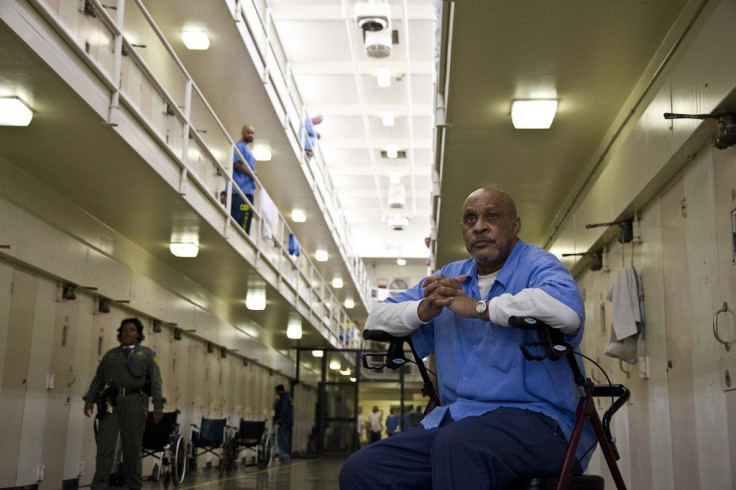Inmate Health Care: Improving The Health Of Prisoners Could Improve The Health Of The General Public

Just because someone earns their place in a state or federal penitentiary does not mean they should be cut off from basic human rights. Unfortunately, inmate health care tends to fall toward the bottom of the priority list at budget meetings. A recent study published in the American Journal of Public Health has found that providing prisoners with adequate health care while behind bars and when they’re released can also help improve public health.
"Improving health in people in jails and prisons can also improve the health of the general population, improve the safety of our communities, and decrease health care costs," Dr. Fiona Kouyoumdjian, a post-doctoral fellow with the Centre for Research on Inner City Health of St. Michael's Hospital, said in a statement. "For example, treating infectious diseases can prevent ongoing transmission, treating people with mental illness can decrease crime, and providing access to primary care can cut down on expensive Emergency Department use."
Kouyoumdjian and her colleagues analyzed 95 international studies regarding inmates who received health care treatments in prison and after their release. Health care interventions led to improved health in 59 of the studies. Either offering treatment to inmates or referring them to a community-based family physician or psychiatrist upon their release lowered their risk for substance abuse, mental health conditions, chronic disease, and stopped the spread of infectious diseases. It also improved on health care utilization.
Even something as simple as providing prisoner health status information as well as available community service after they are released can help improve on the likelihood of a prisoner seeking primary care.
"Linking people with primary care after they are released from jail could improve health and decrease emergency department use," Kouyoumdjian explained. "Despite having significant physical and mental health problems, many people in Canada are currently released from prison without a family physician, and this may lead to unnecessary and expensive use of emergency departments."
When prisoners are deprived of proper health care during their incarceration, the risk of them being released into the general population and spreading communicable disease, such as hepatitis C, HIV, tuberculosis, and sexually transmitted infections, increases significantly. Failure to address mental illness among inmates also leads to higher rates of criminal activity and drug abuse.
"For people who are addicted to opiates such as heroin, starting methadone while in prison can lead to less drug use and less risky behaviours like injecting drugs and sharing needles," Kouyoumdjian added. "Addictions are a common and serious problem for many people in jails and prisons in Canada. The time in custody can provide a unique opportunity to initiate a substitution treatment like methadone, which can improve their health and general well-being. Many people in jails in Canada do not have access to these substitution therapies."
A similar study also published in the American Journal of Public Health revealed that far too many state and federal inmates are not receiving proper treatment for mental illnesses. Although state and federal courts require access to health services in prison, this tends to cover only “severe or serious” mental health conditions. Compared to 18 percent of the general population, 26 percent of prisoners from the study reported a mental health diagnosis.
Source: American Journal of Public Health. 2015.



























